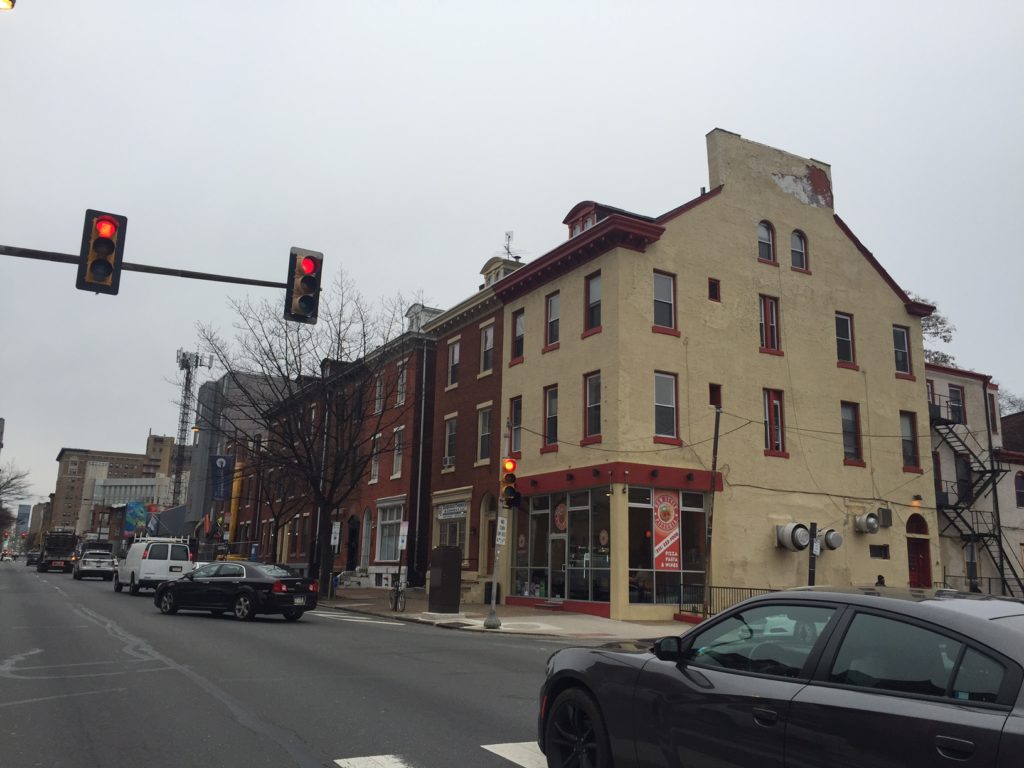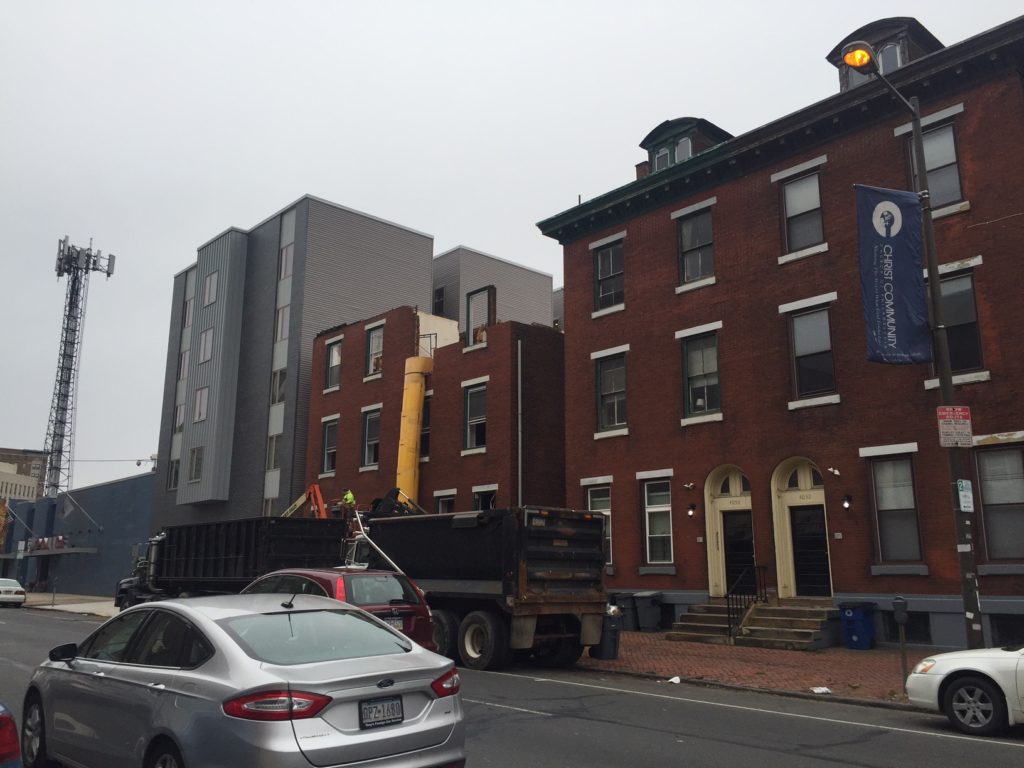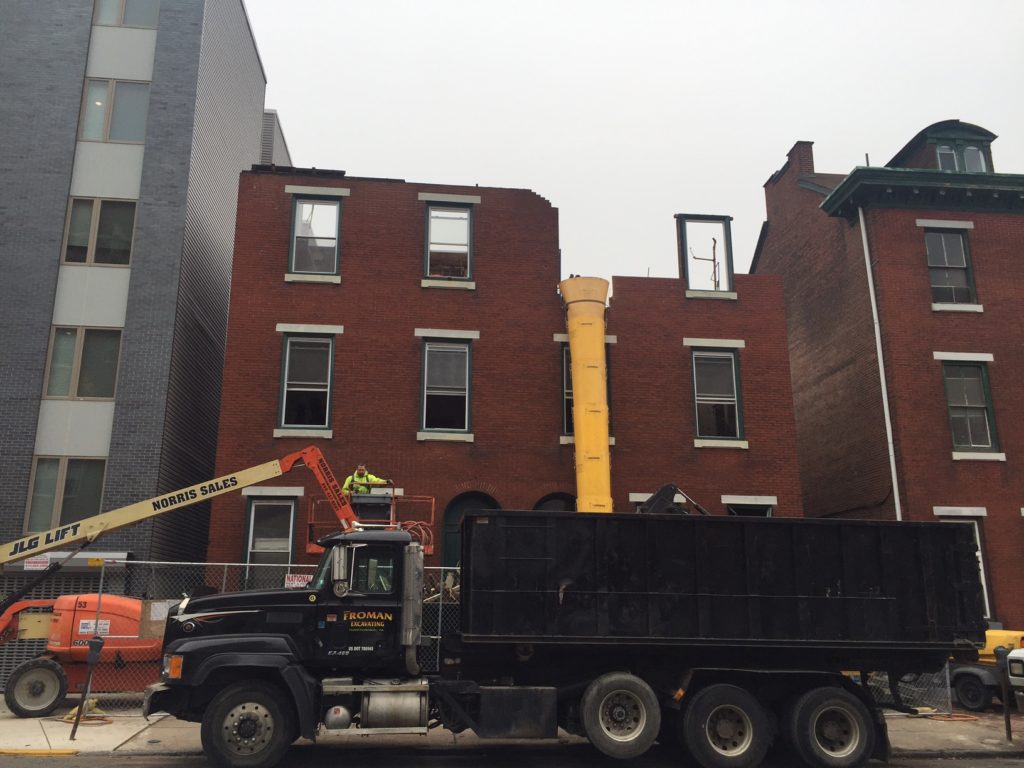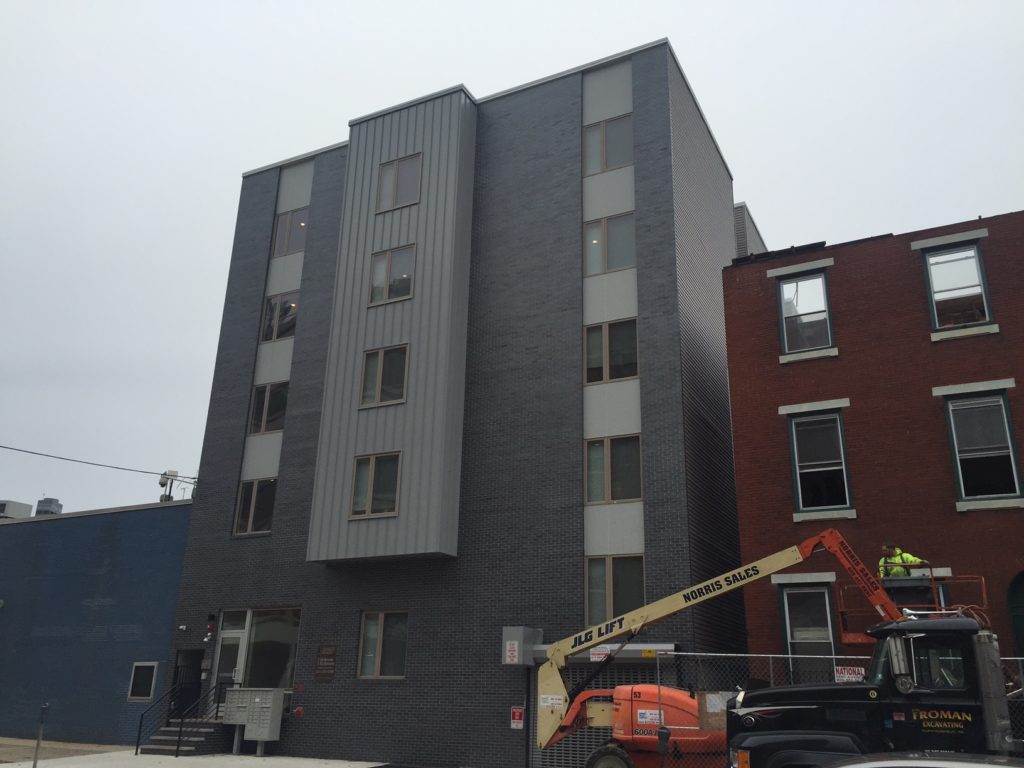Until a couple of years ago, the 4000 block of Chestnut Street boasted four nearly identical pairs of Italianate twins designed by Thomas H. Powers and built shortly after the Civil War. A little over a year ago, University Realty demoed the buildings at 4042-44 Chestnut St. and have since built a five-story 25-unit building that targets students. This project was done entirely by-right, which is surely what drew the developers to the property in the first place. Over the summer, we told you that the same developer had purchased 4046-48 Chestnut St. and was looking to replicate their building next door. Things got a little more complicated this time around.

The University City Historical Society attempted to save the buildings at 4046-48 Chestnut St., nominating them to the Philadelphia Register of Historic Places, along with the two remaining pairs of twins on the block. The demolition permit application came through in March, and the nomination came through in May. The law states that the Historical Commission cannot intervene in this case, as the permit issuance preceded the application for historic designation. Still, per Plan Philly, the project ended up in the court room. We don't claim to be attorneys, but it appears the folks looking to save the buildings were arguing that the permits had some irregularities and were therefore invalid. We were rather surprised that the judge granted a stay of the demolition, pending a ZBA appeal. By the end of August, the ZBA denied the appeal, setting the stage for the demolition of the buildings that's taking place right now.


It's a shame that these handsome buildings are getting torn down, and it's also unfortunate that they'll be replaced by something that will strongly resemble the structure next door.

From a historic preservation perspective, you should know that the Historical Commission designated the other twins on the block, so they won't be going anywhere. From a legal standpoint, while we're saddened by the loss of these buildings, we're relieved that the development process was upheld. By this we mean, developers that pull demolition permits for non-designated buildings are acting in good faith that they'll be able to proceed with their projects as planned. If a precedent were set that a historic designation application coming after a demo permit application could derail that permit, it would create a great deal of uncertainty in the market and potentially have serious consequences for future development in Philadelphia. As we've said before, additional funding for the Historical Commission and more proactive designation activity would curtail these "designation emergencies" that seem to come up every other month. Thankfully, it seems that City Hall is finally getting that message.
